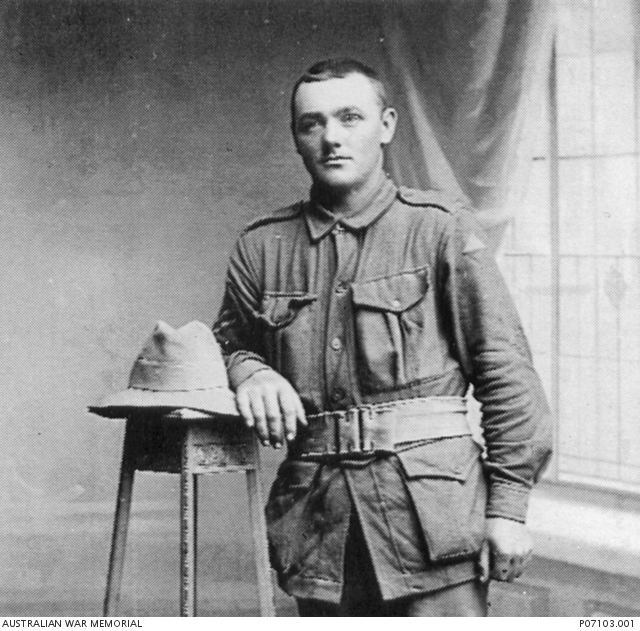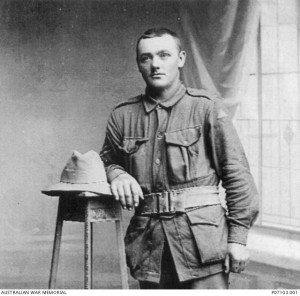Walter Newton was born in Wellington in 1892. He was the sixth of eight children born to Henry and Sarah Newton of Bowan Park. The family later moved to Orange; they resided at 79 Dalton Street. Walter and his siblings attended Orange Public School.
Walter was employed as a labourer when the war broke out. He enlisted in Liverpool in February 1915 and embarked for overseas service in June, a private in the 18th Battalion. Walter spent less than two weeks on the Gallipoli peninsula before being wounded and evacuated to Malta. He was transferred to the 5th London General Hospital in England, where he spent several months.
Private Newton rejoined his battalion in Egypt in January 1916. In March he proceeded to France for service on the Western Front, where he received several promotions, advancing to the rank of Sergeant in November 1916. Sergeant Newton was killed whilst on a working party at Delville Wood, near Longueval on 28 December 1916. He was 25 years old.
In February 1917 the Leader published a letter of consolation to Walter’s family written by WN Higgins, Chaplain of the 18th Battalion.
On 25 April 1917 the second ever Anzac Day service in Orange was held at the Orange Public School. Mayoress McNeilly placed a laurel wreath on the Union Jack for each fallen soldier who had attended the school, including Walter Newton.
On the anniversary of Walter’s death in December 1917 his family published the following poem in the Leader:
Our memory often wanders, dear Walter,
As the evening shadows fall,
Back to the days of happiness,
Days beyond recall.And a vision comes before us,
So fond, so pure, so sweet,
Of him whose lips are silent,
Whose heart has ceased to beat.
But God will link the broken chain
Closer when we meet again.
Walter is commemorated on St Joseph’s Church Orange Honour Roll and on the World War I Roll of Honour on the southern face of the Orange Cenotaph.
In 1923 the Anzac Memorial Avenue of trees was planted along Bathurst Road to commemorate fallen WWI soldiers. A tree was planted in honour of “Sgt W Newton”; it was donated by WL Bingham. Very few of the trees are still standing today.


